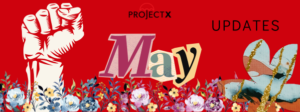Download the full report here: ALMOS UPR Report 2015
MEDIA STATEMENT BY ALMOS ON THE UNIVERSAL PERIODIC REVIEW

As Singapore prepares to engage other United Nations member states on its human rights record at the Universal Periodic Review (UPR) in January 2016, it is clear that much more needs to be done by the government to properly address human rights issues, including to engage Singaporeans on the meaning of human rights in an inclusive society.
As such, in conjunction with World Human Rights Day on 10 December, the Alliance of Like-Minded CSOs in Singapore (ALMOS) has published its UPR submission to the United Nations and launched a public engagement campaign, starting with its Facebook page.
To date, ALMOS has engaged foreign embassies in Singapore to provide them with more informed perspectives on Singapore’s human rights situation at the United Nations. ALMOS has also met with Singapore’s Ministry of Foreign Affairs to advocate its primary positions and to highlight the major shortcomings in the government’s approach towards human rights. ALMOS acknowledges that the Singapore government is committed to the peer review process outlined to the UPR and is just as interested to play its role in engaging the government on these issues.
The UPR submission sets out ALMOS’ key recommendations to improve Singapore’s performance in human rights. Areas for improvement include: Systemic and long-standing issues in Singapore’s legal and justice framework; the government’s discriminatory policies on matters concerning families and minority groups; a near-exploitative work environment that impacts citizens and non-citizens alike; restrictive laws surrounding civic and political participation; and the practice of addressing our social and environmental security only on a needs basis. Underpinning all these issues are the lack of open access to information and the suppression of media interested in reporting on human rights violations.
The government has adopted a few measures as recommended at the United Nations, and there is reason to believe that some recent changes to Singapore’s legal framework, such as laws on the death penalty, indicates that the State is responding positively to UPR recommendations. However, it has not shown a commitment towards safeguarding human rights in Singapore in all aspects of life. Such rights seem to be doled out only in a discretionary and non-accountable way.
ALMOS is particularly concerned by the government’s overly-broad citation of “national security” in response to questions on the human rights impact of its practices. Citizens are not given a clear indication of the parameters of these security concerns; nor are they provided with convincing evidence that what the state practices is in proportion to the supposed security risks. The government has also not justified clearly to citizens or allowed open debate on why it cannot reveal simple statistics like the numbers detained under the Internal Security Act and the Criminal Law (Temporary Provisions) Act, or why individuals so detained are not rightfully accorded an open trial at any time for their alleged offence. It has also failed to explain how national security necessitates the turning away of refugees who have been persecuted in their home countries.
ALMOS believes that human rights should be a matter of intimate concern to each and every Singaporean. The government urgently needs a dedicated focus on human rights, rather than its current piece-meal approach, to make Singapore a more inclusive and harmonious society where progress and liberties go hand in hand.





